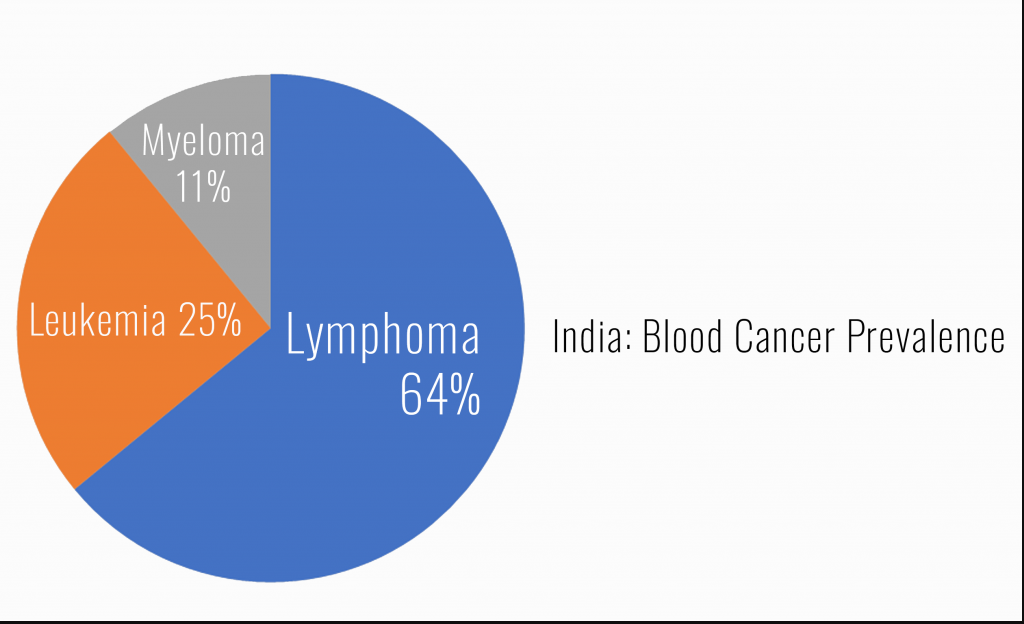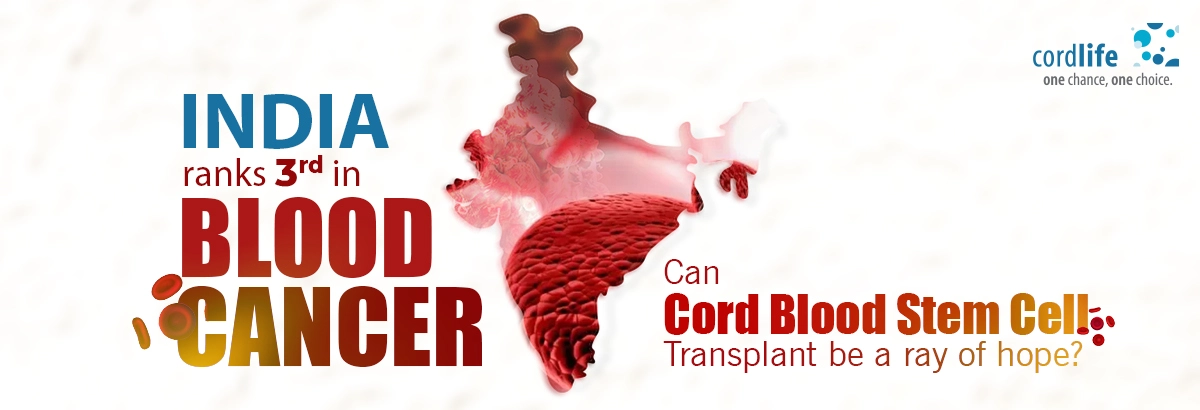Table of Contents
Every year, nearly 1.5 million cancer cases are recorded in India. Research further has it that India ranks 3rd in the world as cases of cancer, are concerned after the USA and China, raising a serious concern for public health. In the last decade, a fast-developing economy like India has had an exponential rise in cases of cancer.
Blood Cancer and Its Types
Blood makes up approximately 8% of a normal body weight. Blood moves around the vascular system of the body, carrying oxygen, nutrients, and hormones throughout the body helping people to live and survive. Blood is produced in the bone marrow which comprises plasma as well as blood cells like red and white blood cells and platelets suspended in plasma. Blood cancers – like Lymphoma, Leukaemia, or Multiple Myeloma – start in the marrow and impact the normal functioning of blood cells and hence get diagnosed.

While Leukaemia is a common blood cancer amongst children, Lymphoma affects a network of tissues, organs, and blood vessels of the body, and Multiple myeloma is a relatively rare blood cancer disrupting the composition of plasma and white blood cells (White blood cells help fight infection), and mostly affecting the health of adults. Children or adults diagnosed with blood cancer of the above-mentioned types may have weight loss, night sweats, tiredness, and lymph node swelling.
Treatments for Blood Cancer
There are different treatments available for blood cancers, depending on the individual case. Some people may be directed to undergo active surveillance without cancer-directed therapy, while others may have to opt for more standard cancer treatments such as immunotherapies, chemotherapies, and targeted agents.
With the advent of stem cell therapy, Bone marrow-derived stem cell transplant has been considered the medically preferential treatment option for a very long time, however, cord blood-derived stem cell or transplant is considered a promising alternative for cancer to conventional sources.
Cord blood is the blood left behind in the placenta and umbilical cord and is a rich source of stem cells that have the potential to treat over 80 life-threatening diseases like the cancers mentioned above.
Cord Blood Stem Cell Transplant for Cancer
Cord blood stem cells offer some major benefits in a transplant. In fact, they are a little more effective than bone marrow stem cell transplants. How?
There were two studies carried out.
- According to a study by the University of Pennsylvania, cancer patients undergoing umbilical cord blood stem transplant will have a portion of the cord expanded for the generation of T cells that could be used for immunotherapy post-transplant.
- According to two studies initiated at the Fred Hutchinson Cancer Center, the first part of the trial compares dUCBT (double umbilical cord blood transplantation) with or without Notch-mediated ex vivo cord expansion, while the second study investigates the infusion of a non-HLA-matched ex vivo expanded cord with either a single or dUCBT. These trials have the potential to improve outcomes for patients undergoing cord blood transplants.
Need More Information About Cordlife Stem Cell Banking?
Book a FREE Presentation Now
That means Cord blood stem cells are naïve, younger, and more primitive. Finding a match is easier. Even if it is a less-than-perfect match, the transplantation happens safely as well as successfully.
